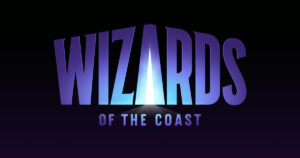Hasbro’s Wizards of the Coast Cancels Video Game Projects
Hasbro Inc.’s Wizards of the Coast, best known for the Dungeons & Dragons tabletop games, has cancelled at least five video game projects as it scales back its ambitions in the industry. Wizards of the Coast is still “committed to using digital games,” a spokesman said in a statement to Bloomberg, adding that the company has “made […]

Hasbro Inc.’s Wizards of the Coast, best known for the Dungeons & Dragons tabletop games, has cancelled at least five video game projects as it scales back its ambitions in the industry.
Wizards of the Coast is still “committed to using digital games,” a spokesman said in a statement to Bloomberg, adding that the company has “made some changes to our long-term portfolio to focus on games which are strategically aligned with developing our existing brands and those which show promise in expanding or engaging our audience in new ways.”
Fewer than 15 people at Wizards of the Coast will lose their jobs due to the shift and will be given a chance to apply to new roles within the company, the spokesman said.
But the reorganization will land hard for several independent studios such as Boston-based Otherside Entertainment and Bellevue, Washington-based Hidden Path Entertainment, both of which were working on games for Wizards of the Coast.
The company, which also publishes the popular card game Magic: The Gathering, spent the last few years investing to make a splash in video games. It signed contracts with several game makers and built at least six of its own game studios in cities including Austin, Texas, and Montreal. So far, the results have been mixed. A 2021 game called Dungeons & Dragons: Dark Alliance was received poorly, but one of this year’s most anticipated video game titles is the Dungeons & Dragons-themed Baldur’s Gate 3, made by the Belgian developer Larian Studios. Early versions have been received well by players.
The growth at Wizards of the Coast has come alongside financial difficulties at Hasbro, whose shares fell 40% last year as higher prices led to lower toy sales.
The company also cancelled an internal project code-named Jabberwocky and two other external games that were early in development. – Bloomberg


















